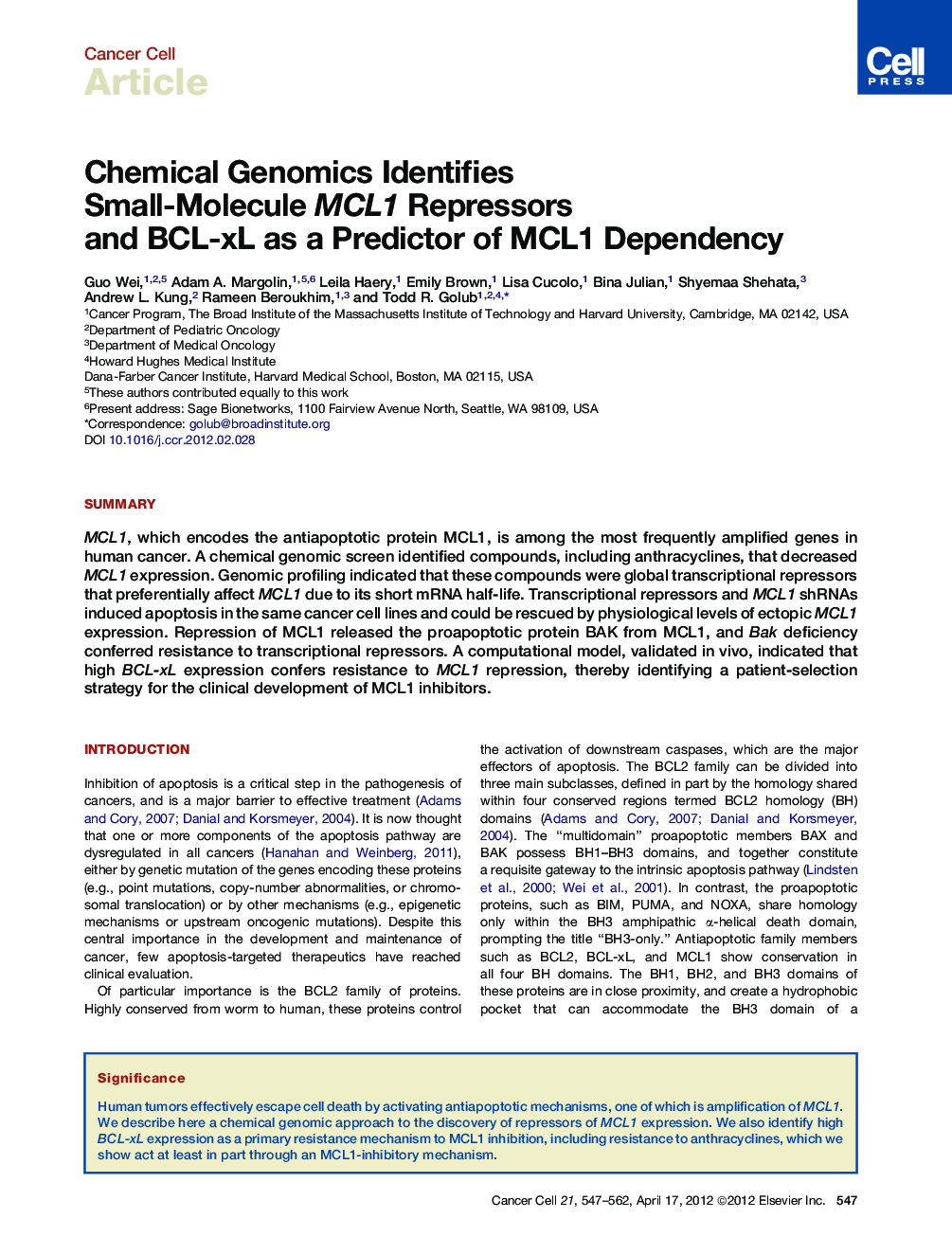| Article ID | Journal | Published Year | Pages | File Type |
|---|---|---|---|---|
| 2107131 | Cancer Cell | 2012 | 16 Pages |
SummaryMCL1, which encodes the antiapoptotic protein MCL1, is among the most frequently amplified genes in human cancer. A chemical genomic screen identified compounds, including anthracyclines, that decreased MCL1 expression. Genomic profiling indicated that these compounds were global transcriptional repressors that preferentially affect MCL1 due to its short mRNA half-life. Transcriptional repressors and MCL1 shRNAs induced apoptosis in the same cancer cell lines and could be rescued by physiological levels of ectopic MCL1 expression. Repression of MCL1 released the proapoptotic protein BAK from MCL1, and Bak deficiency conferred resistance to transcriptional repressors. A computational model, validated in vivo, indicated that high BCL-xL expression confers resistance to MCL1 repression, thereby identifying a patient-selection strategy for the clinical development of MCL1 inhibitors.
Graphical AbstractFigure optionsDownload full-size imageDownload high-quality image (231 K)Download as PowerPoint slideHighlights► Chemical genomics identified MCL1 repressors including anthracyclines ► MCL1 is a major downstream target of transcriptional inhibitors ► Expression level of BCL-xL is a resistance biomarker for MCL1 inhibitors ► BCL-xL is a major determinant of resistance to anthracyclines
